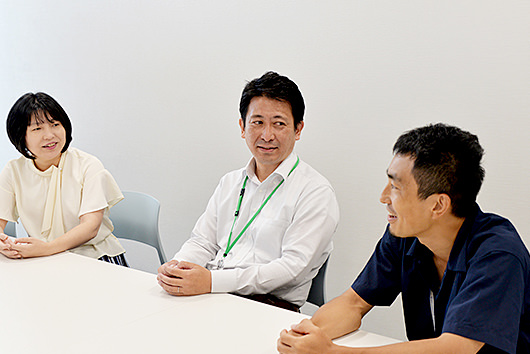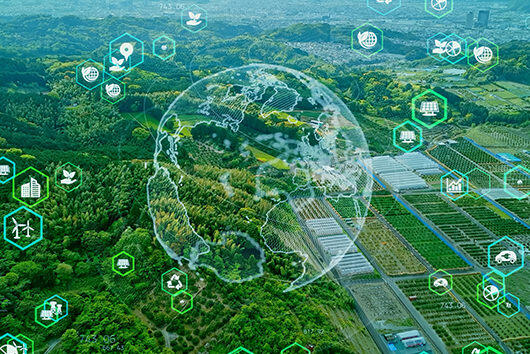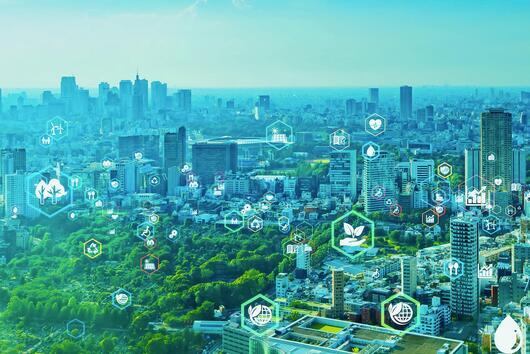As the transition to a sustainable society becomes a common global issue, it is becoming increasingly important to address climate change and nature (natural capital and biodiversity).
In this article, I would like to introduce how our company has approached these two areas so far and also consider how we should further work towards building a sustainable society.
INDEX
- A rare presence as a general construction consultant with many years of experience covering everything from national policy considerations (top-down) to local implementation (bottom-up)
- Efforts to achieve carbon neutrality- Implementing climate change mitigation measures -
- Initiatives to reduce risks to water disasters and water resources- Implementation of climate change adaptation measures -
- Initiatives towards nature positive: Implementing biodiversity conservation measures
- Towards a transition to a sustainable society
A rare presence as a general construction consultant with many years of experience covering everything from national policy considerations (top-down) to local implementation (bottom-up)
It has been more than 30 years since our company, a general construction consultant, began working in the environmental field. In the field of climate change, we began supporting research into global environmental issues in the 1990s, and provided secretariat support for the Ministry of the Environment at the Third Conference of the Parties to the United Nations Framework Convention on Climate Change (COP3), held in Kyoto in December 1997. Since then, we have expanded the scope of our support to include environmental assessment systems, resource circulation policies, and green infrastructure policies, in addition to national climate change mitigation and adaptation policies.
In 2010, in addition to promoting green decentralization reforms and regional revitalization, we established a new organization to handle the construction of smart cities, which was the focus of our efforts at the time on energy. Taking advantage of our strengths in ties with local governments across the country, we began working to implement national policies based on the concept of collaboration between cities and regional areas in the environmental energy field.
With this track record and experience, we would like to introduce one example of how we should address climate change, natural capital, and biodiversity to realize the transition to a sustainable society.
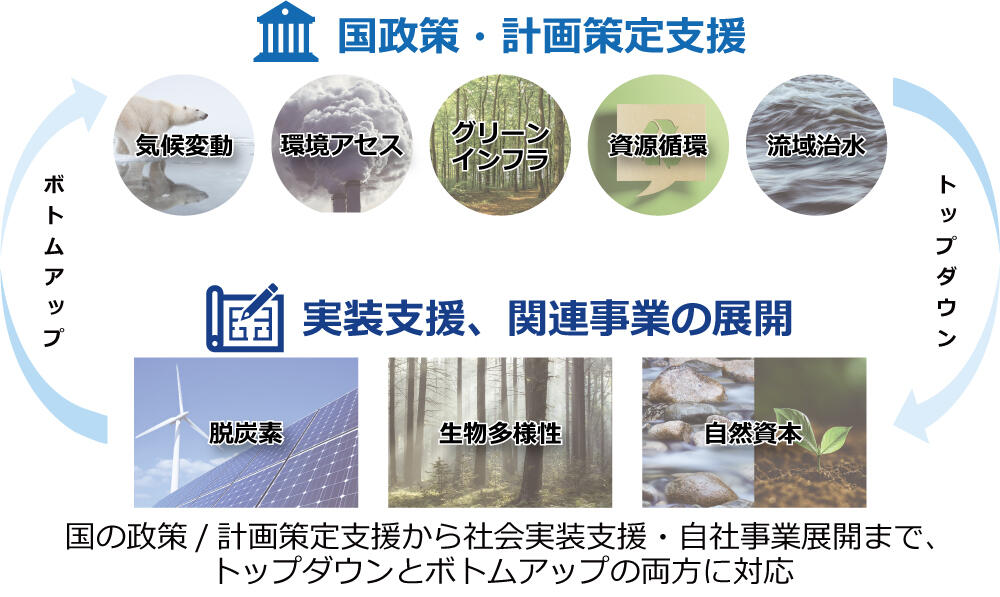
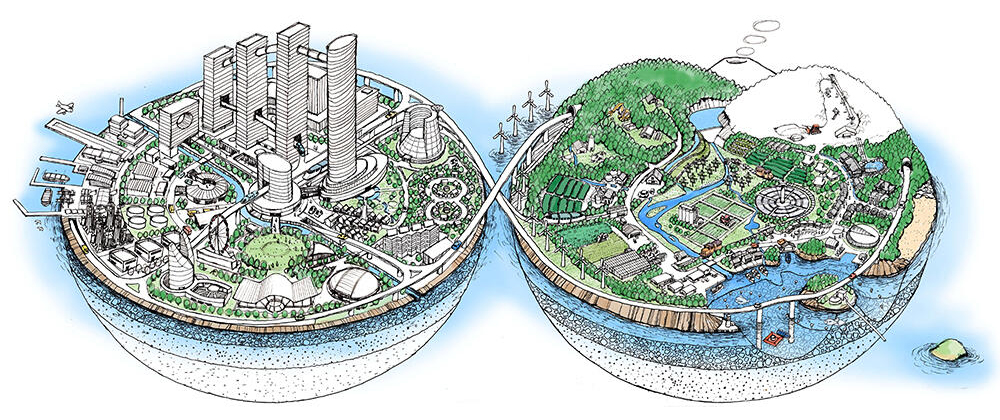
Initiatives towards achieving carbon neutrality
- Implementation of climate change mitigation measures -
In order to achieve carbon neutrality (CN), while taking into account international trends and domestic decarbonization and energy policies, specific technical measures must include (1) thorough energy conservation, (2) carbon-free energy, (3) optimization of energy management, and (4) application of offset credits. This applies to both local governments and private companies.
On the other hand, in the context of the country's basic policy toward GX and the ESG focus of the financial world, emphasis is placed on transforming the industrial and social structure itself and on companies' contributions to local communities. In that sense, it is essential not only to look at technical solutions to the decarbonization of regions and companies, but also to build an overall story, guarantee economic viability, and establish systems that show that decarbonization will lead to further prosperity for regions and companies.
We have experience in supporting pioneering decarbonization regions and corporate carbon neutrality in Japan, as well as in operating a Local Power Producers and Suppliers (PPS) company through our group company Pacific Power, and also in formulating Joint Credit Mechanism (JCM) projects overseas. We have always supported the integration of decarbonization with economic and social development as described above.
Given this background, the direction of our initiatives is as follows:
- Develop an overall picture (business concept) that will enable the decarbonization of local communities and companies while simultaneously resolving other issues they face (strengthening resilience, revitalizing industry, increasing population and employment, etc.).
- We will work steadily to reach consensus among relevant stakeholders to concretely determine the more detailed business plans, technical methods, fundraising strategies, and implementation structures necessary to realize our vision.
- Particularly in Japan, we will introduce autonomous and decentralized energy management technologies such as microgrids*1, and actively utilize Municipal Power Producers and Suppliers (PPS) as entities that can serve as a driving force for decarbonization and solving local issues, thereby ensuring the sustainability of their businesses.
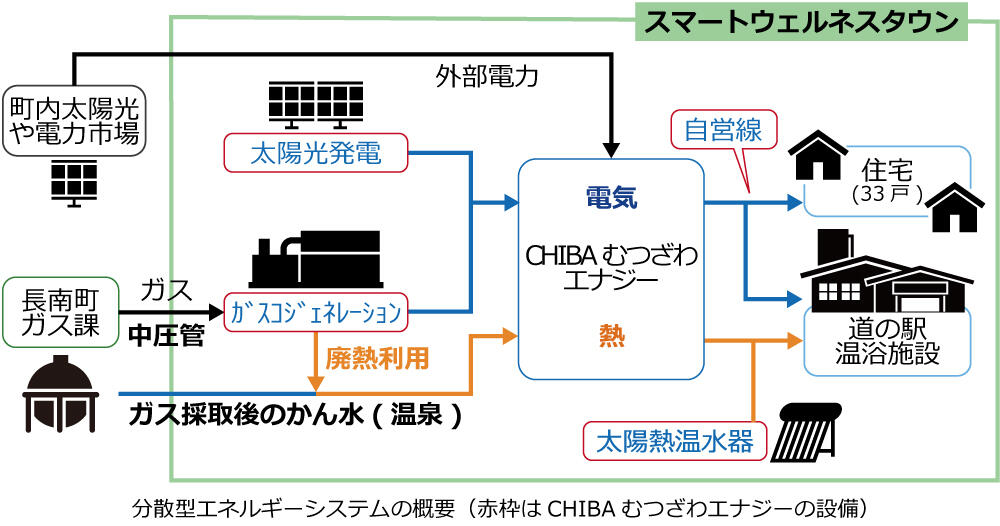
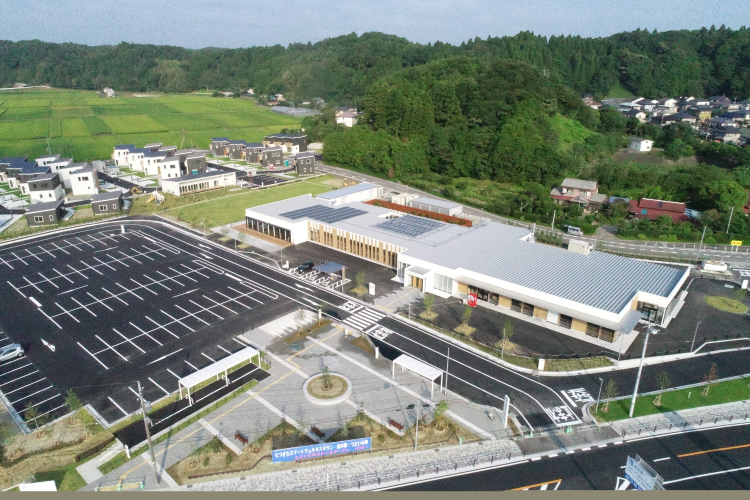
Initiatives to reduce the risks of water disasters and water resources
-Implementation of climate change adaptation measures-
Climate change adaptation measures cover a wide range of areas, including food, water resources, disasters, ecosystems, and health and hygiene. Of these, responding to disasters such as river flooding, storm surge damage, and landslides, which directly affect human lives, is a particularly urgent issue.
For example, we have a wealth of experience in formulating plans and examining countermeasures based on river basin flood control projects, and we have used this technology and experience to support flood risk assessments and countermeasures for not only the national and prefectural governments, but also individual municipalities and companies within river basins, through user experience design*2.
Additionally, in order to protect water resources in local communities, we have conducted analyses of the water cycle in river basins and predictive analyses of the impact of climate change on flow conditions, contributing to the efficient use of water resources, promoting water conservation, and improving water quality.
Given this background, the direction of our initiatives is as follows:
- Regarding water disasters, we will utilize detailed micro-scale flood risk assessments that cannot be captured by global standard assessment tools, as well as various disaster prevention tools and systems that utilize IoT.
- Regarding water resources, we will take into account the uneven spatial and temporal distribution of water resources due to climate change and introduce appropriate water resources management to ensure stable water use and environmental conservation.
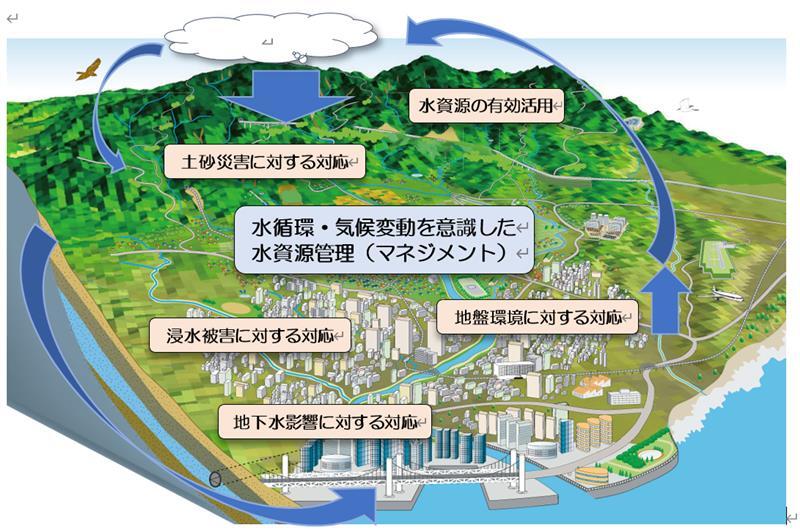
Nature positive initiatives
-Implementation of biodiversity conservation measures-
Corporate and economic activities are heavily dependent on biodiversity and ecosystems, and at the same time, their use has a significant impact on ecosystems, so interest in natural capital and biodiversity is growing among companies and the financial world, with new frameworks such as the TNFD *3 and SBTs for Nature *4 being launched in full force in October 2023. It is also worth noting that in this field there is no unified indicator such as GHG emissions, as there is with CN.
Given this background, the direction of our initiatives is as follows:
- The relationship between corporate and economic activities and biodiversity extends not only to operational sites and suppliers but also to the entire value chain. Therefore, appropriate and flexible methods of understanding and assessment will be utilized that focus on the unique characteristics of biodiversity, such as endemism and regionality.
- Because biodiversity is closely related to local social issues, we will develop policies that focus on the concept of "Nature-based Solutions (NbS)," which positions biodiversity initiatives as a means of resolving those social issues.
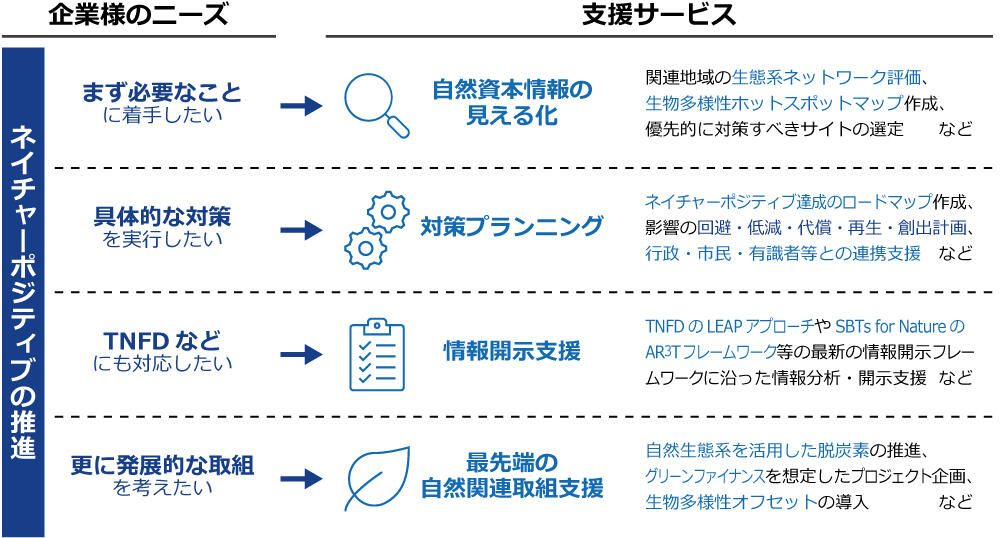
Towards a Transition to a Sustainable Society
To transition to a sustainable society, co-creation and communication with a variety of stakeholders is required, such as collaboration and commercialization between government, local communities, and companies, and disclosure of corporate information to investors.
Through many years of consulting in the development of social infrastructure systems and through operation and participation in actual projects, we have accumulated solid expertise that enables a comprehensive approach. Our comprehensiveness and expertise in the two fields of climate change and natural capital / biodiversity are what make us unique. In addition, by collaborating with Global Company that is our overseas division, we are able to meet the needs of our customers not only in Japan but also overseas.
We will continue to contribute to the transition to a sustainable society by providing "integrated services" that meet the needs of society and our customers.
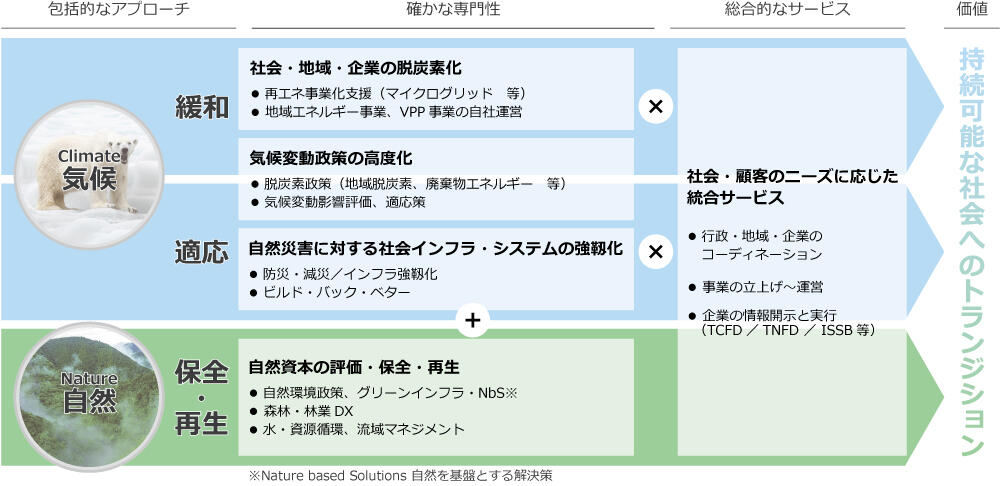
- * 1 Microgrid: A system that aims to achieve local energy production and consumption and disaster prevention capabilities by consolidating energy supply sources, primarily renewable energy, and demand facilities within a certain area.
- * 2 User experience design: Designing all customer experiences that users gain through the use of products, systems, and services.
- * 3 TNFD: The Task Force on Nature-related Financial Disclosures is an international organization that is building a framework for private companies and financial institutions to appropriately assess and disclose risks and opportunities related to natural capital and biodiversity. A framework for information disclosure is scheduled to be published in September 2023.
- * 4 SBTs for Nature: Measurable, actionable, time-bound targets based on the best available science that enable companies to act in line with society's sustainability goals, within the planet's limits, for the interrelated systems of water, biodiversity, land, and oceans in their value chains.






